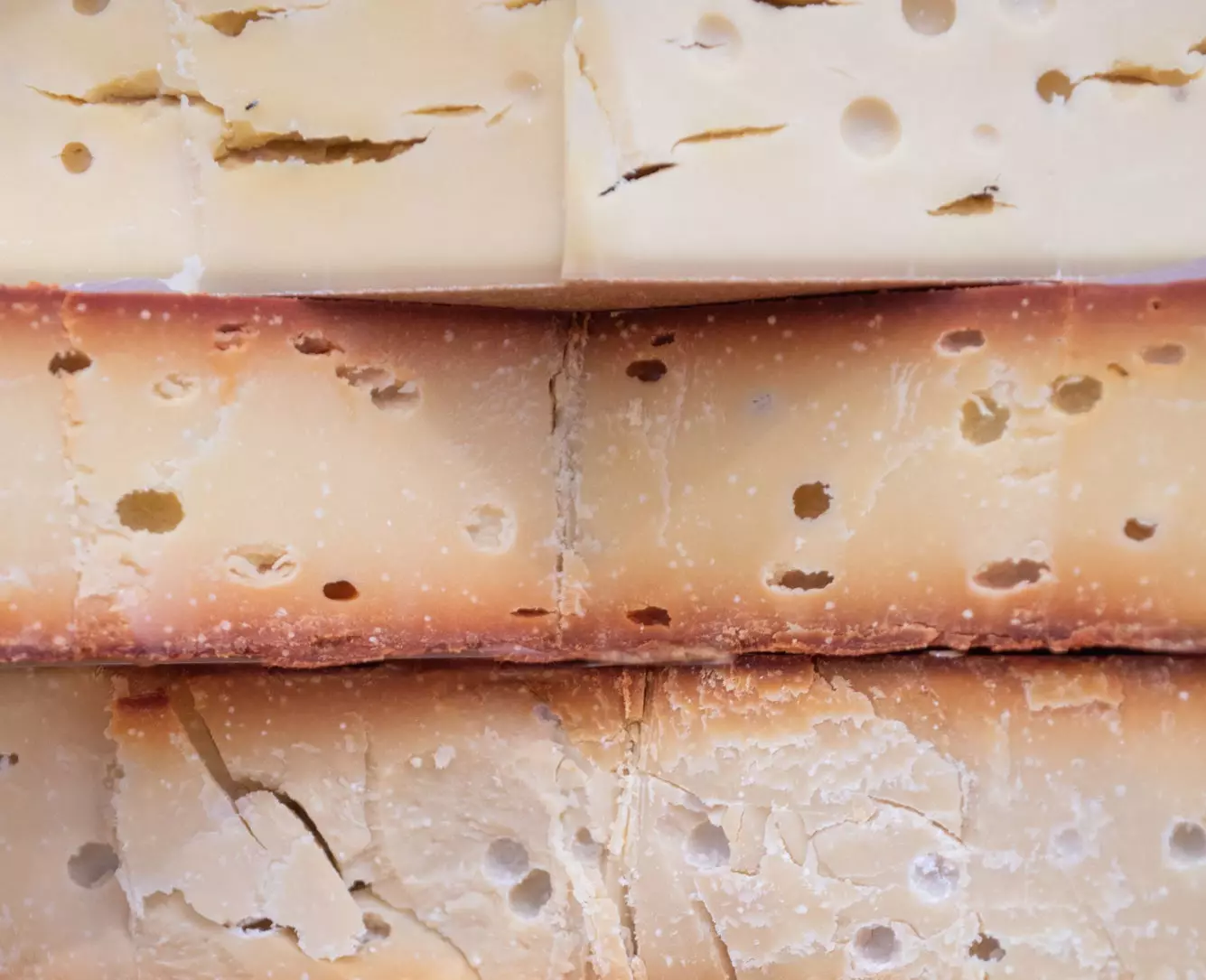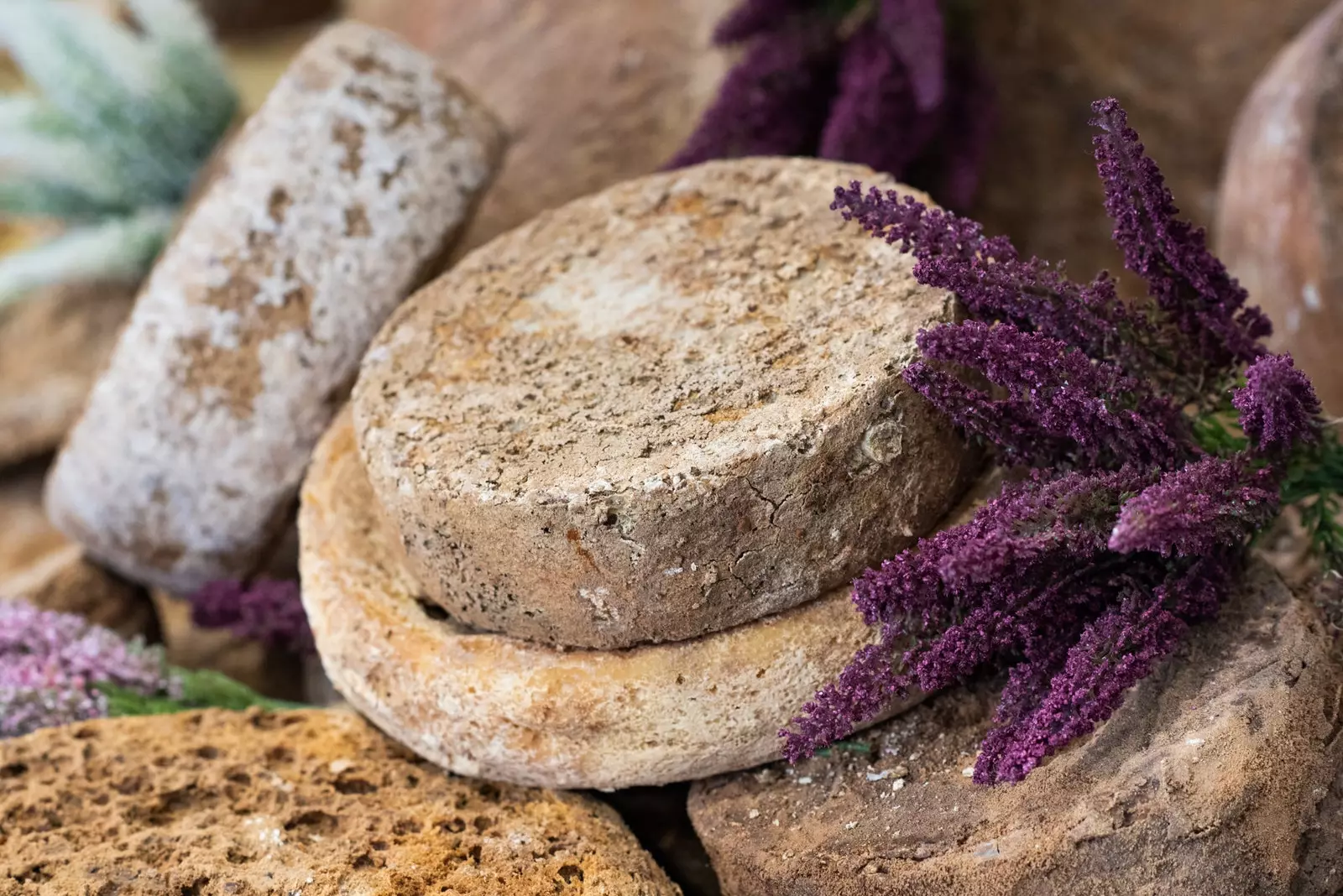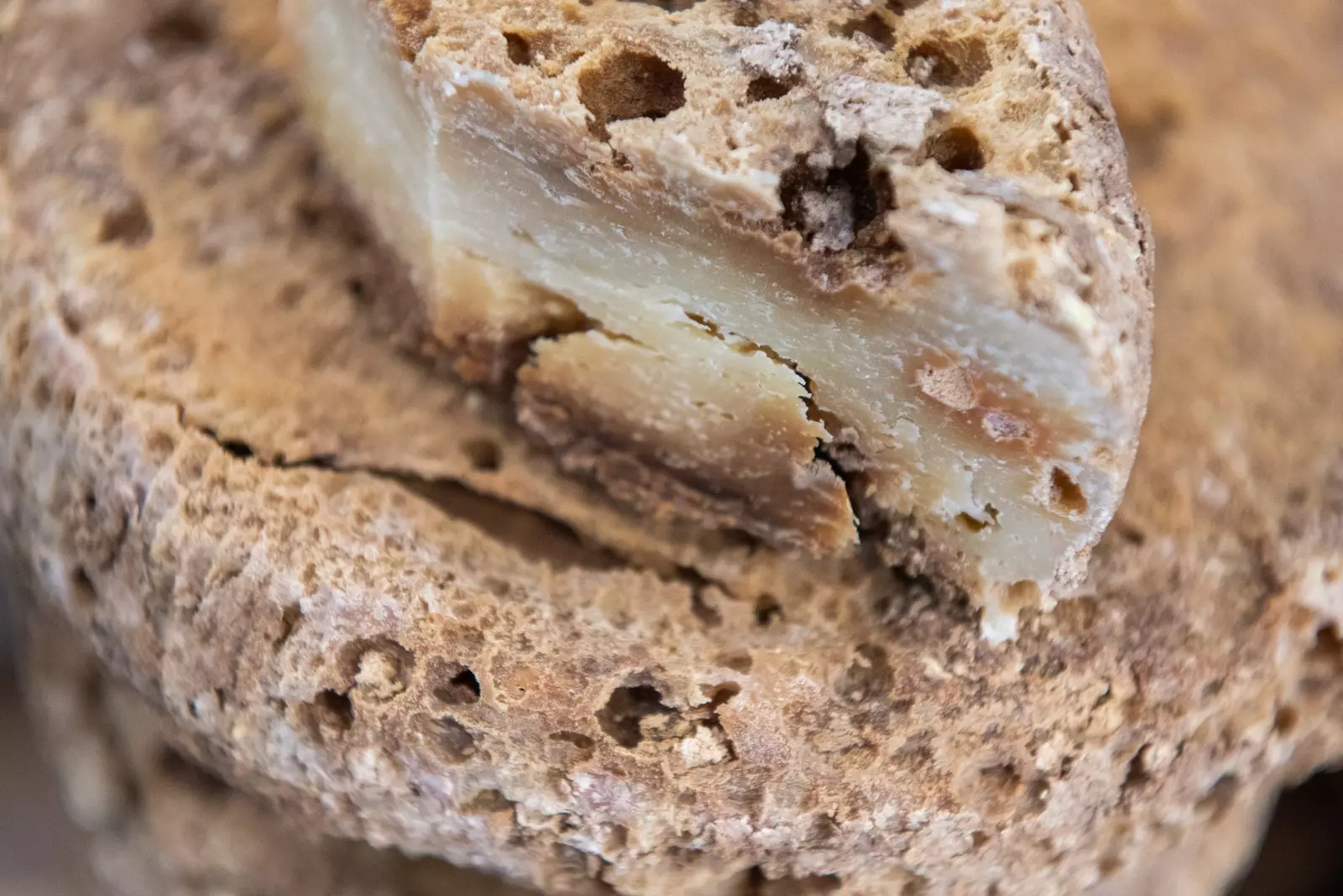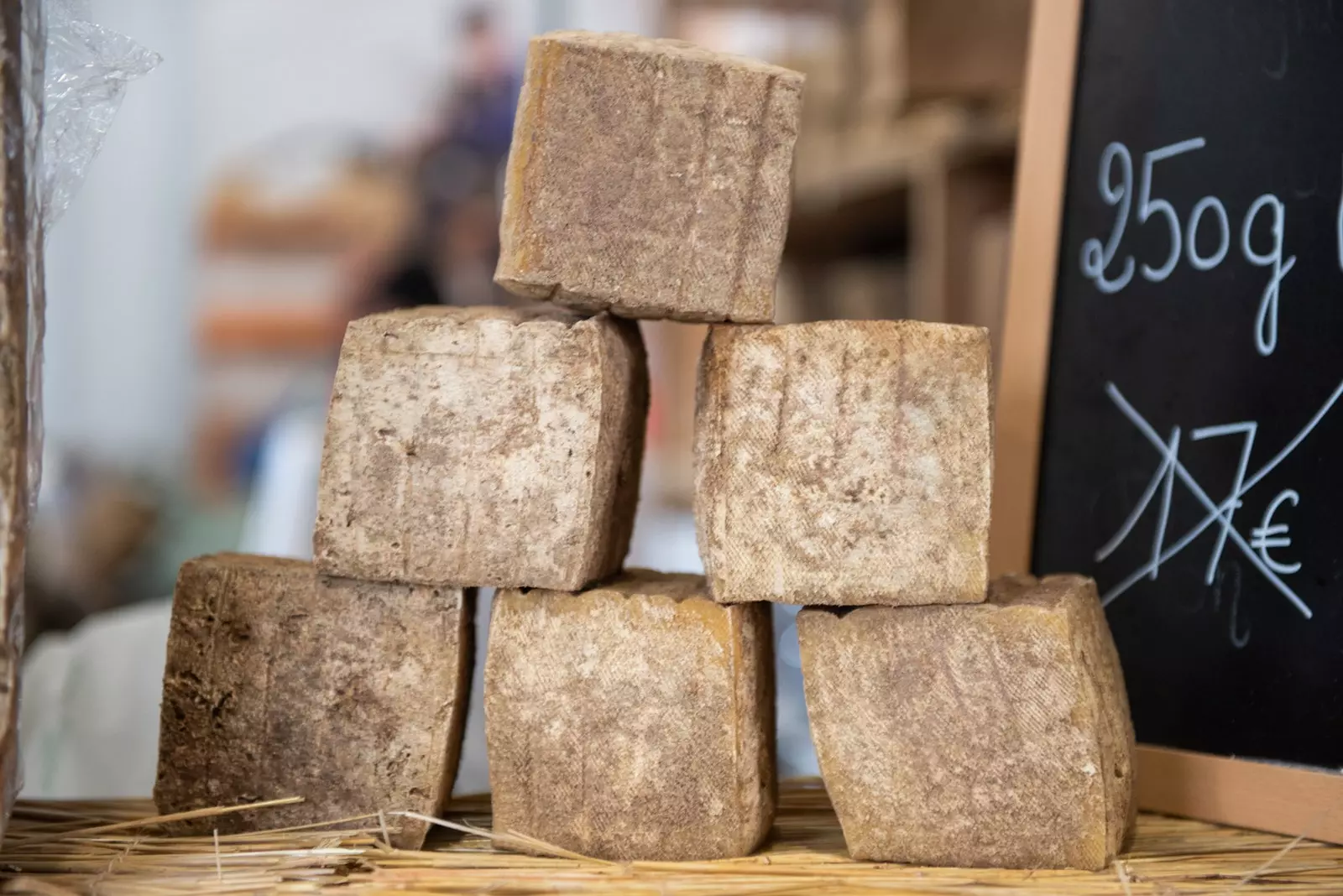
It will be natural or it will not be
"Nature is possible" was the precious (it seems to me) message that was sent to the world from the most important fair of natural cheeses that exists: Cheese in Bra, cradle of Slow Food and the Terra Madre Foundation.
From the beautiful Piedmont they devised a surprisingly complete epistle: we can build a better world from food. Specifically, it has been shown that the artisanal production of cheese has a positive impact on the environment and on the biodiversity that surrounds the producer.
I add a very important detail: they taste (and smell) so much better.
Before getting fully into the curd, let's continue with the context that develops so well David Attenborough in A Life on Our Planet because figures are scary and whoever is not scared has a stone in their heart: industrial food is responsible for 34% of the production of gas emissions.
To get an idea of the magnitude of the figure, transportation (so heavy that we are with electric cars) is responsible for 17%, but there we are filling the cars with plastic and processed and our food stomachs are filled to the brim with pesticides and additives to the point of boredom.
We can no longer dissociate food, health (ours) and take care of the planet that shelters us: because they are the three legs of the same table.

We can build a better world from food
But back to the table, what is a natural cheese? Well, the answer could not be simpler: a cheese that is made just as our grandparents made it, because in reality, this way of making cheese is a return to the origins, to the way in which our ancestors made theirs, respecting the cycles of the crops with which the cattle are fed.
But natural is ecological? Actually, both share two key aspects: raw milk and animals raised in their natural habitat.
The food industry adopted pasteurization as a model that ensures mass production standards for years and, incidentally, throwing darts loaded with malaje on the small artisan: They have sold us that raw milk is a risk to our health, the funny thing is that the same people who load our body with chemicals and our animals with antibiotics say so.
“Organic cheeses are those natural cheeses whose owners have requested the granting of the official seal from the competent bodies” who is speaking Jose Manuel Manglano , owner of one of the most beloved cheese factories in Spain.
“As for natural cheeses, I can tell you that they are the origin of organic cheeses, that is to say, its elaboration process is the one on which the official organisms are based for the architecture of the conditions to acquire the seal; Simplifying it a lot, I would say that natural cheeses are equivalent to old cheeses: absence of the use of pesticides in the fields whose pastures serve as food for the animals and the cultivation of the plants that provide the rennet, and of course of hormonal treatments in the animals, which grow healthy and free”.

"Nature is possible"
A food based on the native wild flora for a subsequent elaboration that is also made naturally, with ferments and field rennet, with maturing accompanied (or not) by natural molds to provide the expression of the land in which it lives.
Real food, necessary for a better life . But this gaze —which I sense is irreversible— on the local is advancing little by little, because the consumer is learning to value a handmade product that respects its environment.
We're not just talking about food, we're talking about doing things right. precisely for that More and more dairies are deciding to bet on cheeses with a lower environmental impact.
But let's see, then, Why 90% of the cheeses that we find in the windows of almost any supermarket is not natural? Well, for always: You have to follow the money trail.
He tells me Pascual Cabaño, founder of the Rey Silo cheese factory located in Pravia, Asturias (José Andrés is also a member and together they make the fabulous Afuega'l Pitu), which “The pasteurization of cheeses was imposed in the seventies and eighties of the last century because livestock farming, including dairy farming (both in Spain and in Asturias) caused health problems, because they were cheeses that were made in very precarious hygienic-sanitary conditions and with very traditional training, but without adequate facilities and sufficient technical knowledge”.

Natural cheeses taste (and smell) much better
Time passes and the sector becomes more professional, “in all that time Asturian farmers made a brutal reconversion. They professionalized and modernized like nobody else and now they are serious, rigorous and very professional businessmen. that they cannot allow brucellosis or tuberculosis to enter their farms because they know that they will slaughter all the animals and thus lose the genetics of their stable”.
This is not counting the livestock sanitation campaigns carried out by veterinarians (twice a year) or the lactic acid analyzes in the laboratory. It is in this context that the "decision was born to impose the pasteurization of milk in traditional dairies that in 1985 produced cheeses with less than 60 days of maturation, which meant introducing industrial models in small dairies throughout Spain".
Industrialization from the nose and leveling from the bottom, thus destroying a sector that was already professionalizing (in its own interest, go) and that It takes us away from the commitment to unapologetic craftsmanship from Switzerland or France. It's just business as usual, Spain.
Pascual is very clear about it: “it's just nonsense (pasteurization). If these animals are carefully cared for, if they have passed all the health controls of the livestock sanitation campaigns, if these animals have access to natural valley or high mountain pasture, if they eat well and at ease, if they ruminate what they have to ruminate placidly, (...) If all this gives rise to a milk with an incredible organoleptic quality, why do we have to pasteurize it and add laboratory yeasts? Doesn't that make sense?"
Natural cheeses: it's no longer just that they taste better (like real cheese!), They have more antioxidants and are more respectful of animal welfare. We cannot keep looking the other way.
The answer to a way of life that did not make us happy (savage industrialization) turns out that we had it at home, in the memory of our artisans and our countryside: do things as they have always been. I wrote a sincere "It will be local or it won't be" in this magazine not long ago - well, let me improve it: it will be local and natural or it will not be.
